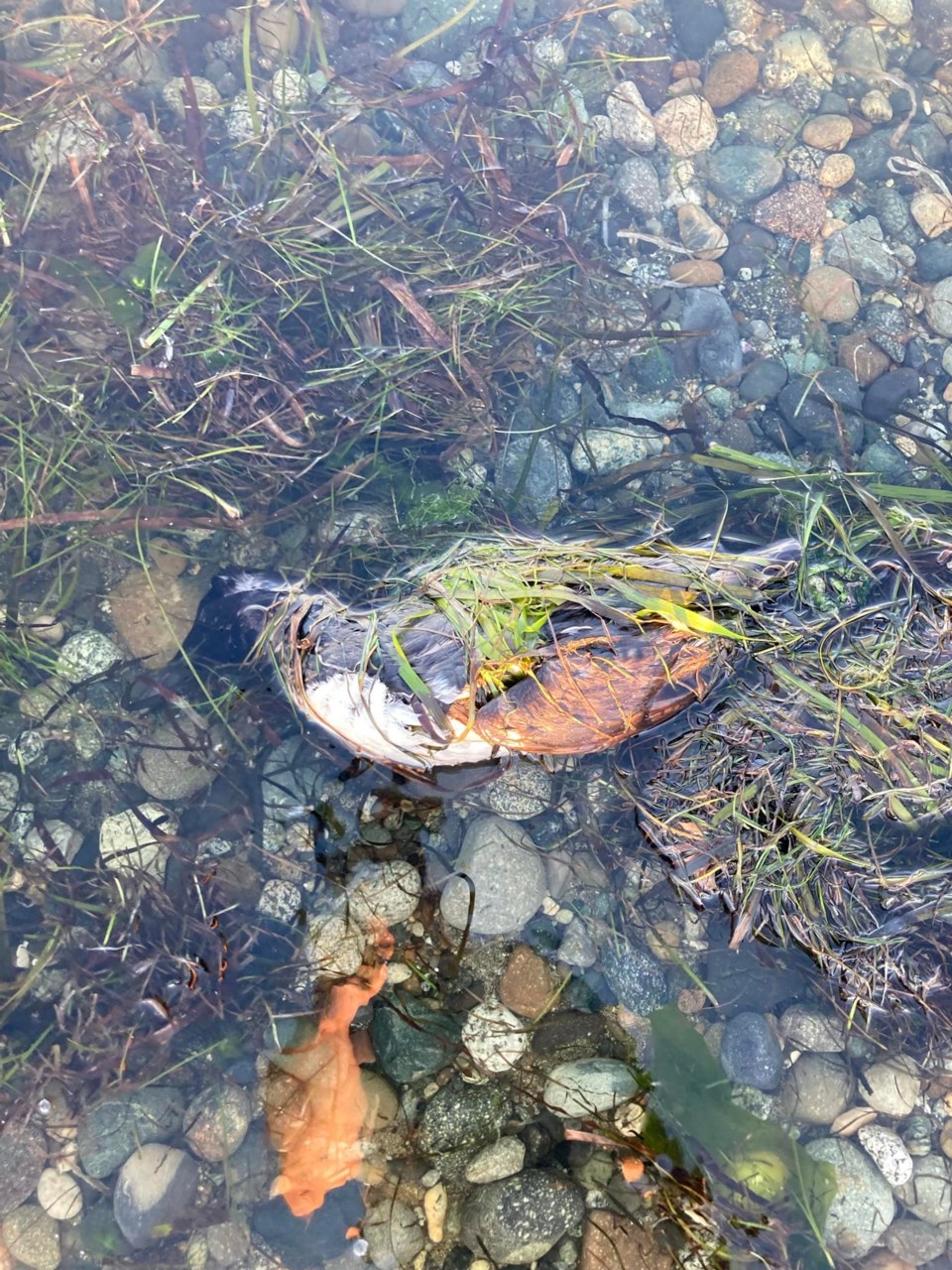Six of several birds found dead on Centennial Beach this week are being tested for highly pathogenic avian influenza, Environment and Climate Change Canada, said Friday.
Media spokesperson Hannah Boonstra said that the province on Wednesday, received reports of “multiple dead birds” being found on the beach in Tsawwassen and continuing south to the U.S. border.
Boundary Bay Regional Parks staff said they collected and disposed of 10 carcasses. Six bird carcasses are now being tested.
Boonstra said the public should not handle wild birds. Nor should people feed wild birds because that encourages them to gather and increase the possibility of disease spread. The Avian flu can be spread both within the same species and to other species.
“Dead, injured or sick birds should not be touched and should be immediately reported to the B.C. Wild Bird Mortality Investigation Program call line 1-866-431-BIRD.”
Environment and Climate Change Canada researchers and biologists have been helping the Canadian Food Inspection Agency and the Canadian Wildlife Health Cooperative with the testing of live and dead birds.
The highly pathogenic Avian influenza has been confirmed in several wild birds, including sea gulls, waterfowl, raptors such as eagles and hawks and crows and ravens, Boonstra said.
A local resident said on Facebook Wednesday she saw a dozen of the black and white birds lying on the shoreline, belly up, saying it was a concerning sight.
According to B.C. Health Link, Avian flu virus usually is not passed from birds to people, but since 1997, some people have become sick with this serious, deadly kind of bird flu. Most of these infections have been in Asian countries among people who have had close contact with birds raised on farms.



